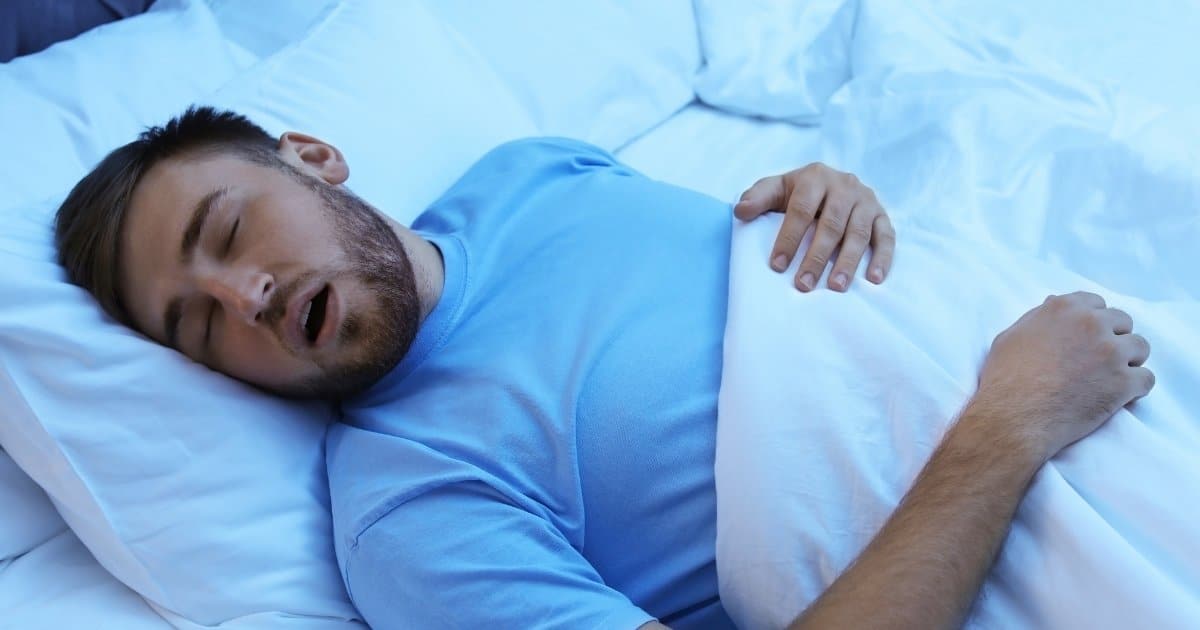Published on January 19, 2025

Snoring is common, but does it always mean sleep apnea? Not necessarily. While loud and frequent snoring can be a warning sign, many people snore without having this condition. Sleep apnea is a serious disorder that affects breathing during sleep. If left untreated, it can lead to health problems. Understanding the difference between simple snoring and sleep apnea is important. Let’s break it down.
Why Do People Snore?
Snoring happens when airflow is partially blocked during sleep. This causes the tissues in the throat to vibrate, creating noise. Several factors can lead to snoring, including:
- Nasal congestion – Allergies, colds, or a deviated septum can block the nose.
- Sleeping position – Lying on the back allows the tongue to fall backward, making snoring worse.
- Excess weight – Extra tissue around the neck can put pressure on the airway.
- Alcohol consumption – Alcohol relaxes throat muscles, increasing the chances of snoring.
- Aging – As people get older, throat tissues become softer, leading to more snoring.
Not all snoring is linked to a serious condition. However, in some cases, it can be a sign of sleep apnea.
Signs That Snoring May Indicate Sleep Apnea
Snoring alone isn’t always a cause for concern. But if it comes with other symptoms, it could point to sleep apnea. Watch for these warning signs:
- Pauses in breathing during sleep – This is a strong indicator of sleep apnea. A bed partner may notice it before the person snoring does.
- Gasping or choking sounds – The airway may close completely for brief periods, causing sudden gasps for air.
- Daytime fatigue – Poor sleep quality leads to tiredness, even after a full night’s rest.
- Morning headaches – Lack of oxygen during sleep can cause headaches upon waking.
- Difficulty concentrating – Sleep deprivation affects focus and memory.
- Irritability and mood changes – Poor sleep can lead to mood swings and depression.
If snoring is accompanied by these symptoms, it’s time to take action. Sleep apnea is more than just an inconvenience—it can impact overall health.
Health Risks of Untreated Sleep Apnea
Ignoring sleep apnea can lead to serious health problems. Over time, it can affect the body in several ways, including:
- High blood pressure – Interrupted breathing puts stress on the heart.
- Heart disease – Poor oxygen levels increase the risk of heart attacks and strokes.
- Diabetes – Sleep apnea has been linked to insulin resistance and type 2 diabetes.
- Weakened immune system – Poor sleep affects the body’s ability to fight infections.
- Weight gain – Sleep deprivation can lead to increased appetite and cravings.
Seeking treatment is important for long-term health. The good news is that sleep apnea South Side is manageable.
How to Tell If It’s Just Snoring or Sleep Apnea?
Not sure if snoring is harmless or a sign of sleep apnea? A few steps can help determine the difference:
- Observe sleep patterns – If a bed partner notices pauses in breathing, gasping, or choking, it may be sleep apnea.
- Monitor daytime symptoms – Excessive tiredness, headaches, or difficulty focusing can point to a bigger issue.
- Use a sleep tracking device – Some devices track breathing and oxygen levels during sleep.
- Consult a doctor – A sleep study can provide a definite answer.
If snoring happens only occasionally and without other symptoms, it may not be a concern. But if it’s persistent and comes with other issues, getting checked is a smart move.
Treatment Options for Snoring and Sleep Apnea
Treatment depends on the cause. If snoring is mild, simple lifestyle changes may help. For sleep apnea, medical treatments are often needed.
Lifestyle Changes for Snoring
- Sleep on your side – This helps keep the airway open.
- Lose excess weight – A healthy weight reduces airway pressure.
- Avoid alcohol before bed – This prevents throat muscles from relaxing too much.
- Use a humidifier – Dry air can make snoring worse.
- Try nasal strips – These help open nasal passages.
Medical Treatments for Sleep Apnea
If lifestyle changes don’t help, medical treatment may be needed:
- CPAP machine – This device provides continuous air pressure to keep the airway open.
- Oral appliances – Custom-made devices adjust the jaw position to improve airflow.
- Surgery – In some cases, removing excess tissue in the throat can help.
Getting the right treatment can make a huge difference in sleep quality and overall well-being.
When to Seek Help?
If snoring is loud, frequent, and comes with other symptoms, it’s best to consult a healthcare provider. A sleep study can confirm whether sleep apnea is present. The sooner it’s diagnosed, the sooner treatment can begin.
Snoring isn’t always a sign of sleep apnea, but it’s worth paying attention to. Taking steps to improve sleep can lead to better health and a higher quality of life.
